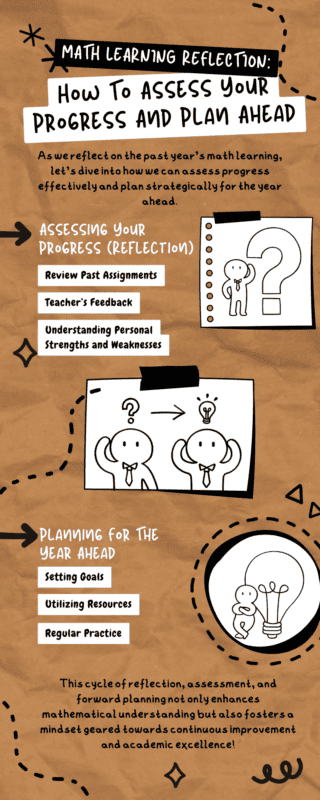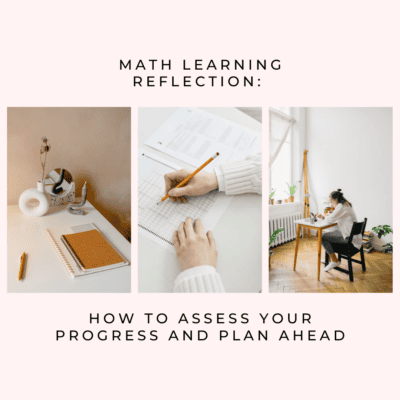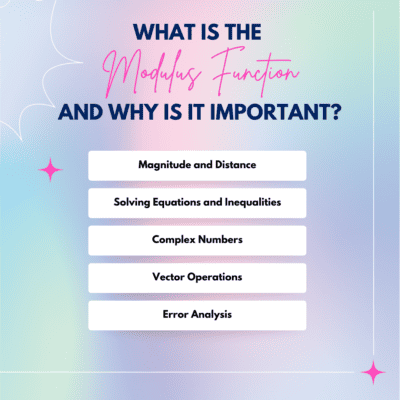As we approach the end of another year, it’s the perfect time to pause and reflect on the educational journey, particularly in subjects like mathematics that play a critical role in academic development. Mathematics is a subject that builds upon itself; concepts learned in one grade lay the foundation for the next. Therefore, assessing one’s progress in math isn’t just about grades or scores; it’s about understanding how well the foundational concepts have been grasped and how effectively they can be applied to more advanced topics.
It’s also a time to consider the effectiveness of current study strategies and whether they align with your learning style and academic goals. As we reflect on the past year’s math learning, let’s dive into how we can assess progress effectively and plan strategically for the year ahead.
Assessing Your Progress (Reflection)
- Review Past Assignments: Start by looking back at the math work done over the year. This includes homework, assignments, tests, quizzes, and any projects. Identify the areas where you excelled and the topics that were challenging. This review helps in recognizing patterns and pinpointing specific areas that need more attention.
- Teacher’s Feedback: Regular assessments and feedback from teachers/tutors can give a more detailed understanding of a student’s math abilities and areas where they can improve. For instance, TGM students can text our tutors to ask any questions they have about the math lessons/topics/concepts. Our tutors will provide feedback/tips on how to solve the math problem.
- Understanding Personal Strengths and Weaknesses: Analyze your performance trends regularly. Look back at previous tests, quizzes, and assignments. Notice patterns in the types of errors made or the topics where you consistently scored well. Then, assess how well you adapt to solving various types of math problems.
Planning for the Year Ahead
- Setting Goals: Based on the assessment, set clear and achievable goals for the coming year. These could range from improving in specific areas, like algebra or trigonometry, to broader goals like enhancing problem-solving skills or preparing for exams.
- Utilizing Resources: Make full use of the resources online. Our centre offers comprehensive online materials that are designed to complement classroom learning and enhance overall math proficiency. This includes engaging mini-courses for focused learning on specific topics, detailed study guides for thorough revision, essential topical questions to strengthen understanding in various areas, and an extensive question bank for continual practice and assessment.
- Regular Practice: Consistency is key in math. Unlike subjects that rely heavily on memorization, math requires consistent engagement and problem-solving practice to develop a deep understanding and proficiency. This consistent engagement not only builds confidence but also hones problem-solving skills, essential for academic and real-world challenges.

In conclusion, the practice of reflecting on your math learning and planning for what comes next is incredibly valuable. By reviewing your previous work, considering feedback from teachers and tutors, and assessing your personal experiences, you gain crucial insights into your math abilities. Setting clear goals, utilizing the rich array of resources provided by tuition centres, and committing to regular practice are pivotal steps in preparing for future success. This cycle of reflection, assessment, and forward planning not only enhances mathematical understanding but also fosters a mindset geared towards continuous improvement and academic excellence!
This article serves solely as advice and should not be considered a replacement for professional guidance. While these suggestions can be beneficial for many, individual experiences and needs may vary. If you or someone you know is struggling with severe anxiety or other mental health issues, it’s crucial to seek help from professional therapists or counsellors. They can provide specialized assistance tailored to individual needs.





